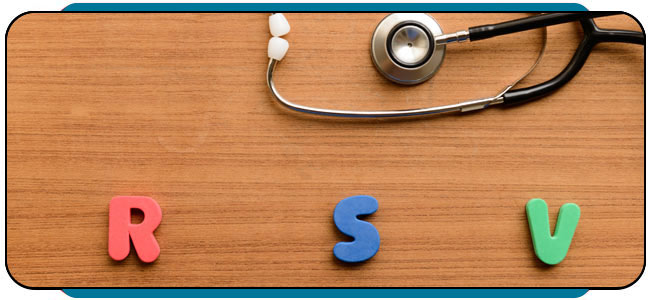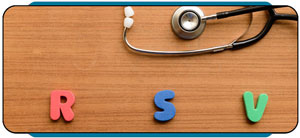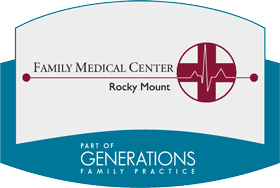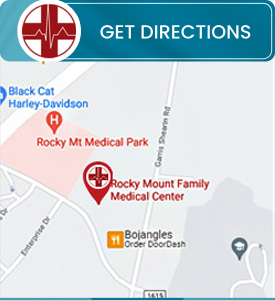Respiratory Syncytial Virus (RSV) Treatment Q&A
Respiratory syncytial virus (RSV) is a common virus that affects the respiratory system and some of its common symptoms include a runny nose, cough, low-grade fever, sore throat, sneezing, and mild headache. Treatment for RSV is available in Rocky Mount, NC, at Rocky Mount Family Medical. Meet our team of professionals today! For more information, contact us or request an appointment! We are conveniently located at 804 English Road, Suite 100 Rocky Mount, NC 27804.


Table of Contents:
Is RSV very serious?
What are the first signs of RSV?
How long does RSV last?
Is RSV contagious to adults?
At our primary care clinic, we advise you that respiratory syncytial virus (RSV) is a common respiratory virus that can cause a wide range of symptoms, from mild to severe. The virus is a leading cause of lower respiratory tract infections in infants and young children, which can lead to hospitalization or death.
In healthy children and adults, RSV typically causes mild symptoms such as a runny nose, cough, and low-grade fever. These symptoms usually resolve on their own within a week or two. However, in certain populations, such as infants and older adults with weakened immune systems, RSV can lead to much more serious health problems.
Infants and young children are at a higher risk for developing bronchiolitis after an RSV infection, which is inflammation of the small airways in the lungs. This can cause difficulty breathing, wheezing, and a persistent cough. In severe cases, infants with bronchiolitis may require hospitalization and treatment with oxygen.
Older adults with weakened immune systems, or those with chronic lung or heart disease, are at risk of developing pneumonia, which is a lung infection that can cause fever, cough, and difficulty breathing. Pneumonia caused by RSV can be very serious and lead to hospitalization, and in some cases, death.
The first signs of respiratory syncytial virus (RSV) infection can include:
● Runny nose
● Cough
● Low-grade fever
● Sore throat
● Sneezing
● Mild headache
Symptoms of RSV infection typically develop within 4 to 6 days of exposure to the virus. In some cases, symptoms may be mild and similar to a common cold, while in other cases, symptoms may be more severe. In infants and young children, RSV can cause more severe symptoms such as difficulty breathing, wheezing, and a persistent cough, which may indicate bronchiolitis. Not all people infected with RSV will have the same symptoms, and in some cases, people may not have any symptoms at all. If you or your child experience severe symptoms or difficulty breathing, it is recommended to seek medical attention promptly. Reach to us today to learn more about treatment options and our services.
The symptoms of respiratory syncytial virus (RSV) infection typically last for about 1 to 2 weeks. However, some people may experience symptoms for a longer period of time, especially if they have a weakened immune system or a pre-existing lung or heart condition.
The virus itself can remain in the body for a few days after the symptoms have gone away, which means that people can still spread the virus to others during this period. This is why it’s important to practice good hygiene and avoid close contact with people who are sick, to prevent the spread of the virus.
Our healthcare professionals provide treatments for RSV infection, which is typically a mild illness, though it can lead to more serious health problems such as bronchiolitis and pneumonia. Groups such as infants, young children, and older adults with weakened immune systems are at risk of health complications from RSV, which may require hospitalization.
Yes, RSV is contagious in adults. RSV is a highly contagious virus that spreads easily from person to person through respiratory droplets when an infected person talks, coughs, or sneezes. The virus can also spread through contact with contaminated surfaces or objects and then touching the eyes, nose, or mouth.
RSV infects people of all ages, although it is most common in infants and young children. However, adults can also get infected with RSV and can spread the virus to others, particularly to those who are more vulnerable such as infants and older adults with weakened immune systems.
Symptoms of RSV infection in adults are usually mild, similar to a common cold, and typically include a runny nose, cough, and low-grade fever. However, in some cases, adults may experience more severe symptoms, especially if they have a pre-existing lung or heart condition. It’s very important to practice good hygiene, such as washing hands frequently and avoiding close contact with people who are sick, to prevent the spread of RSV. For more information, contact us or request an appointment! We are conveniently located at 804 English Road, Suite 100 Rocky Mount, NC 27804. We serve patients from Rocky Mount NC, Nashville NC, Westry NC, Dortches NC, Red Oak NC, and Sharpsburg NC.

Additional Services You May Need
▸ Ancillary Services
▸ Diabetes Management
▸ Pediatric Care
▸ Family Care
▸ Men’s Health Care
▸ Women’s Health Care
▸ Employer Services
▸ Joint Injections (Cortisone)
▸ Laboratory Services
▸ Hypertension Treatment
▸ Vaccines and Immunizations
▸ Sports Physical Exam
▸ Flu Shots
▸ Dehydration Treatment
▸ Sunburn Treatment
▸ STD Testing



